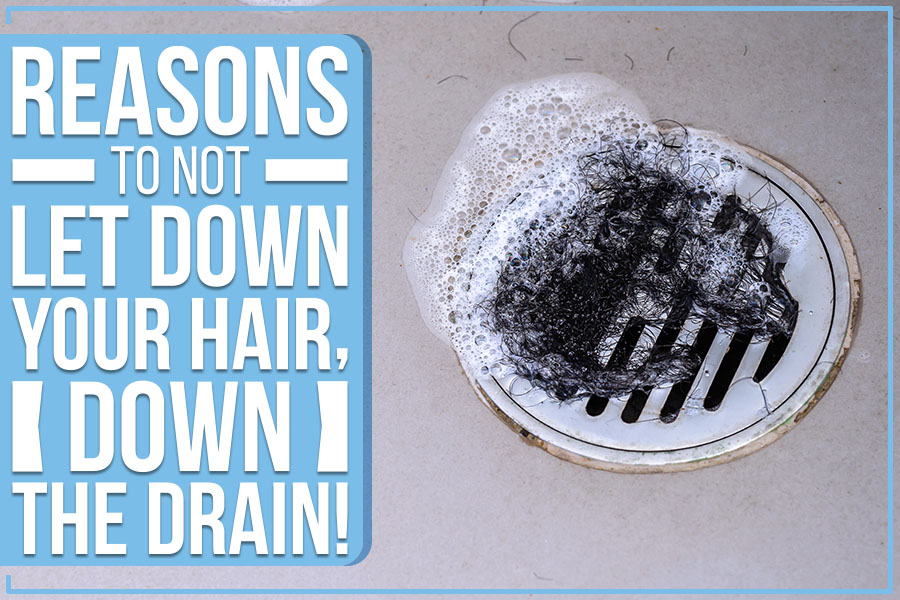Hair is a natural part of life, but it can become a nuisance when it ends up in our drains. While a few strands might seem harmless, over time, hair can accumulate and create significant plumbing problems. This article will explore the dangers of can hair go down the sink, how to prevent clogs, and what to do if you already have a blockage.
This guide will delve into the science behind hair clogs, provide practical tips for preventing them, and offer effective solutions for dealing with existing drain issues. We’ll cover everything from simple home remedies to professional plumbing services, empowering you to keep your drains flowing freely.
Hair Clogs in Drains
Hair is a surprisingly resilient material. It can intertwine with other debris like soap scum, toothpaste residue, and grease, forming a dense mat that gradually restricts water flow. This buildup starts subtly, often manifesting as slow draining. However, if left unchecked, the clog will worsen, leading to complete blockage and wastewater backup.
The severity of hair clogs depends on several factors, including the amount of hair shed, the type of drain (shower vs. sink), and the frequency of cleaning. Hair is particularly problematic in shower drains due to the constant exposure to water and the tendency for longer strands to accumulate.
Identifying a Hair Clog
Recognizing the signs of a hair clog early can prevent major plumbing issues. Common indicators include:
- Slow draining: Water takes noticeably longer to disappear down the drain.
- Gurgling sounds: Air trapped in the drain pipes creates gurgling noises when water is running.
- Standing water: Water accumulates in the sink or shower basin, refusing to drain properly.
- Foul odors: A clogged drain can trap sewage gases, emitting unpleasant smells.
Preventing Drain Clogs
Fortunately, there are several simple steps you can take to prevent hair from clogging your drains:
- Use a strainer: A mesh strainer placed over the drain opening acts as a first line of defense, catching hair and debris before they enter the pipes.
- Regularly clean drains: Flush your drains with hot water after each use to help remove loose hair and soap scum. Once a week, pour a mixture of baking soda and vinegar down the drain, followed by hot water, to break down buildup.
Additional Tips for Prevention:
- Consider using a shower drain catcher specifically designed to trap hair.
- Avoid pouring grease or oil down the drain, as it solidifies and contributes to clogs.
- Dispose of hair clippings in the trash, not down the drain.
Plumbing Problems Caused by Hair
Ignoring persistent hair clogs can lead to serious plumbing problems:
- Overflowing drains: When a clog becomes severe, wastewater can overflow from the sink or shower, creating a messy and unsanitary situation.
- Sewage backups: In extreme cases, a blockage in the main sewer line can cause sewage to back up into your home, posing a serious health hazard.
Costly Repairs:
Hair-related plumbing issues often require professional intervention, leading to expensive repair bills.
Drain Cleaning Solutions
If you suspect a hair clog, there are several solutions you can try before calling a plumber:
- Plunger: A plunger creates suction that can dislodge minor clogs. Ensure the plunger cup covers the entire drain opening for maximum effectiveness.
- Bent wire hanger: Straighten a wire coat hanger and bend one end into a small hook. Carefully insert it into the drain to remove hair and debris.
Professional Drain Cleaning:
For stubborn clogs, consider hiring a professional plumber who has specialized tools and expertise to clear the blockage effectively.
Conclusion
While can hair go down the sink is a common occurrence, understanding the potential consequences can help you take preventative measures. By implementing simple strategies like using strainers, regularly cleaning drains, and avoiding pouring grease down the drain, you can significantly reduce the risk of hair clogs and plumbing problems. Remember, early detection and prompt action are key to preventing costly repairs and maintaining a healthy plumbing system.



